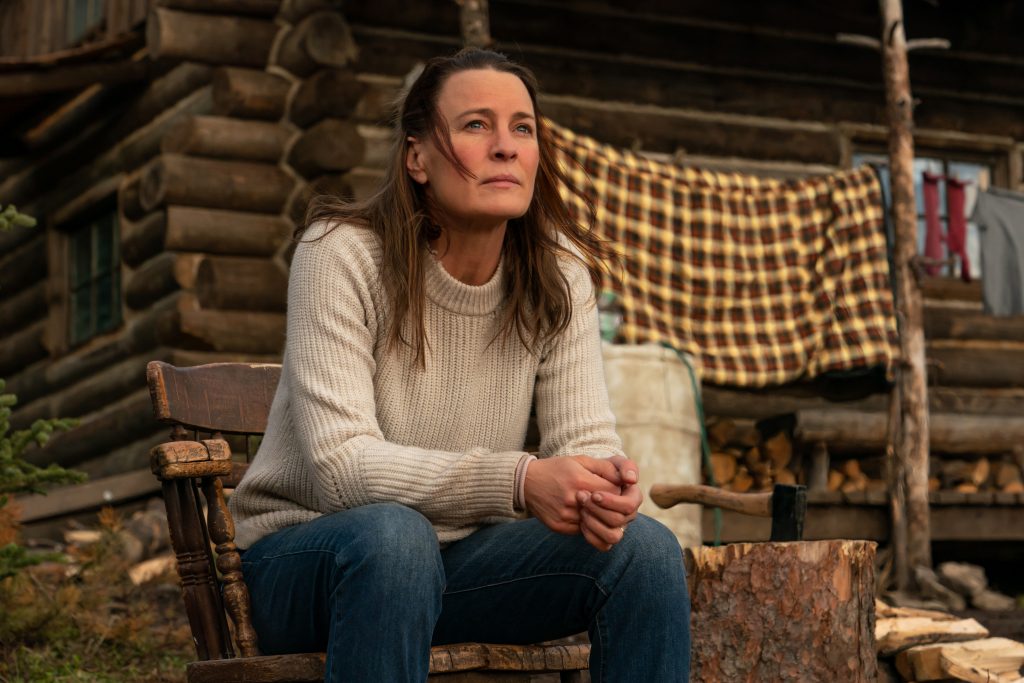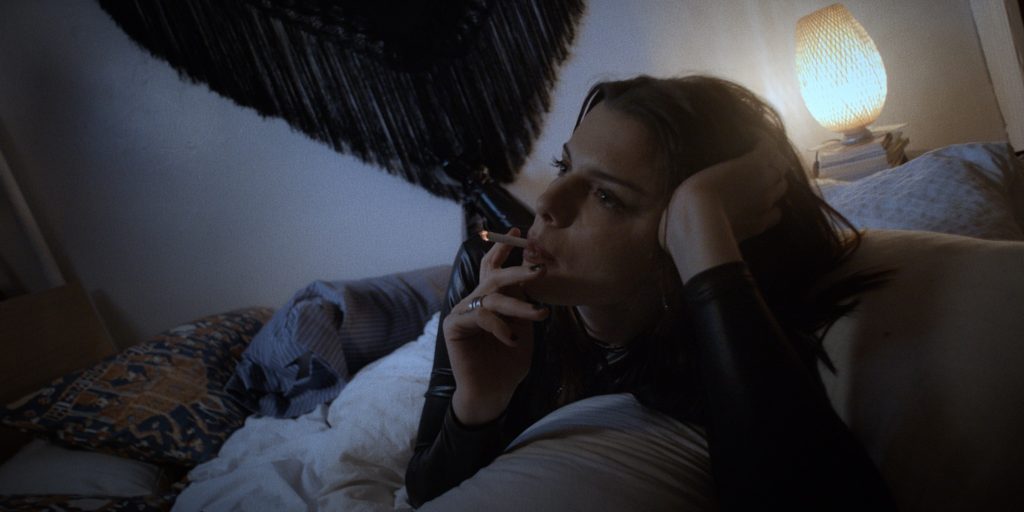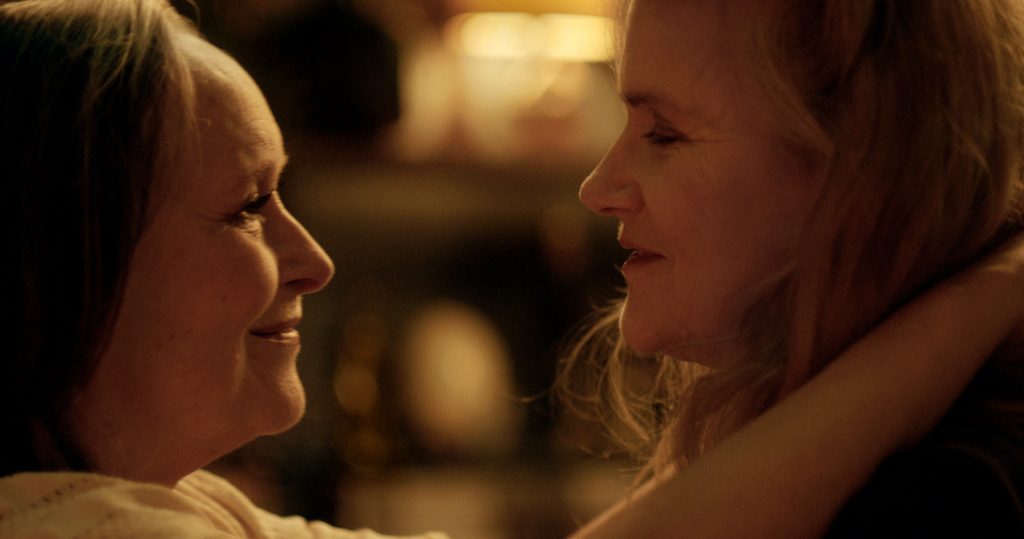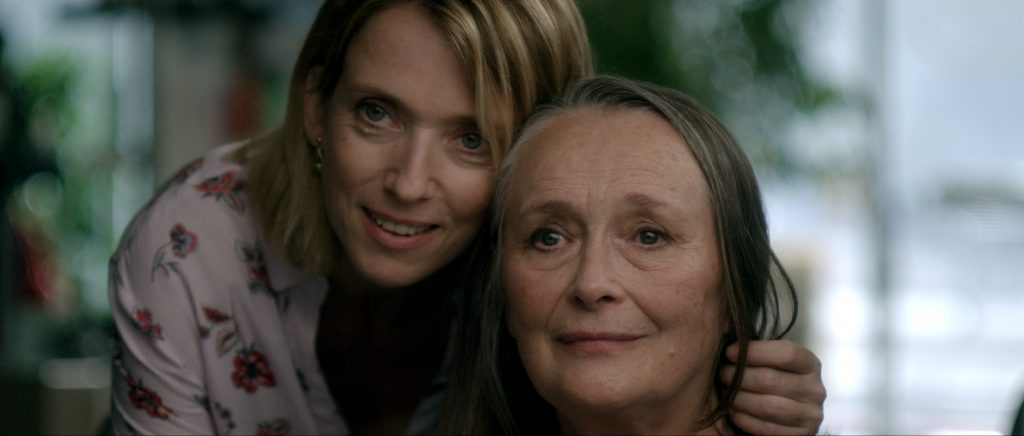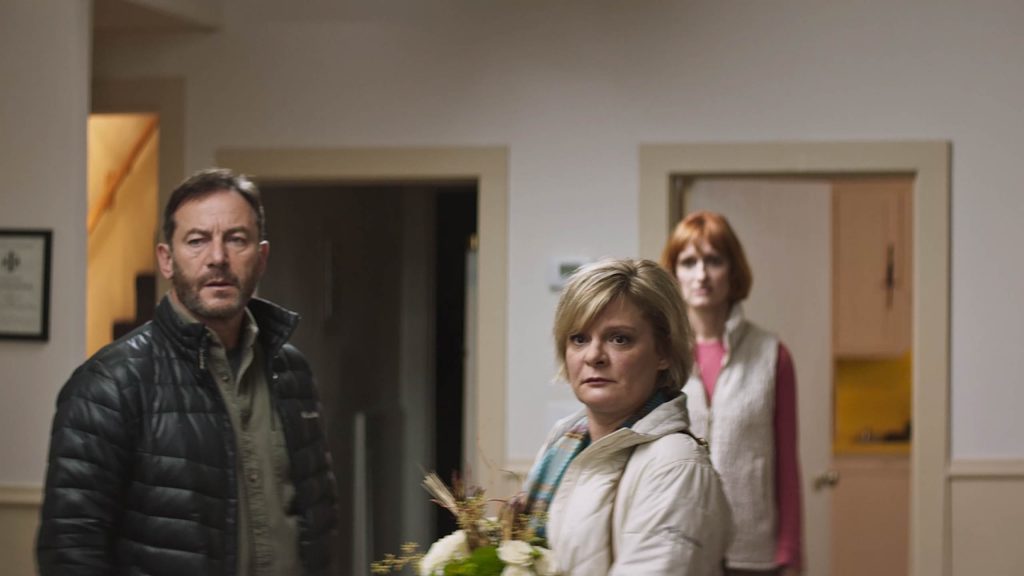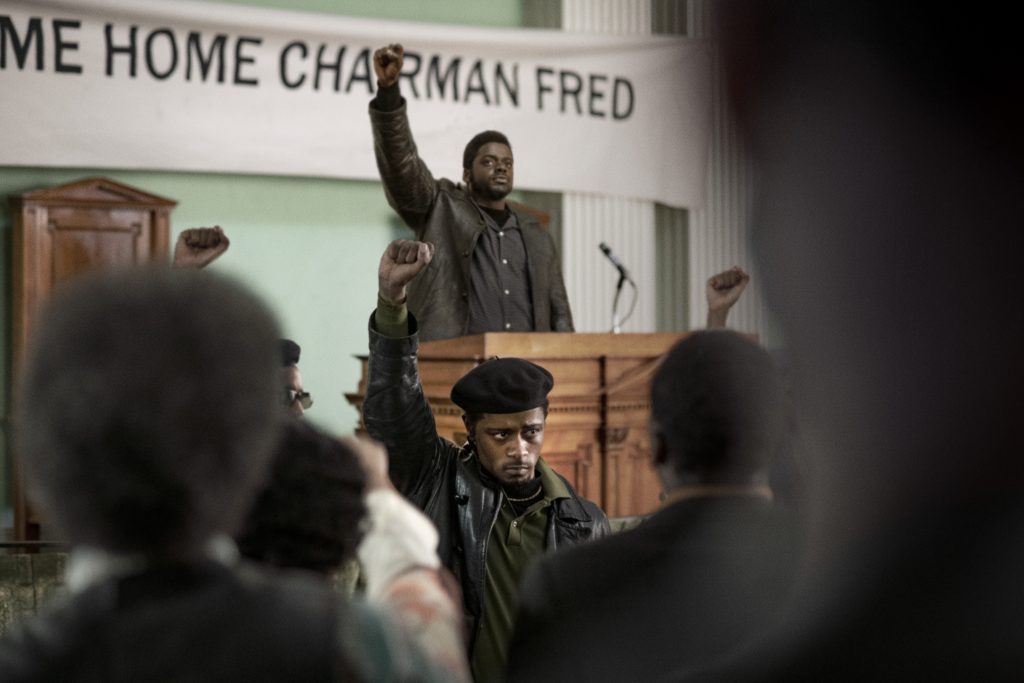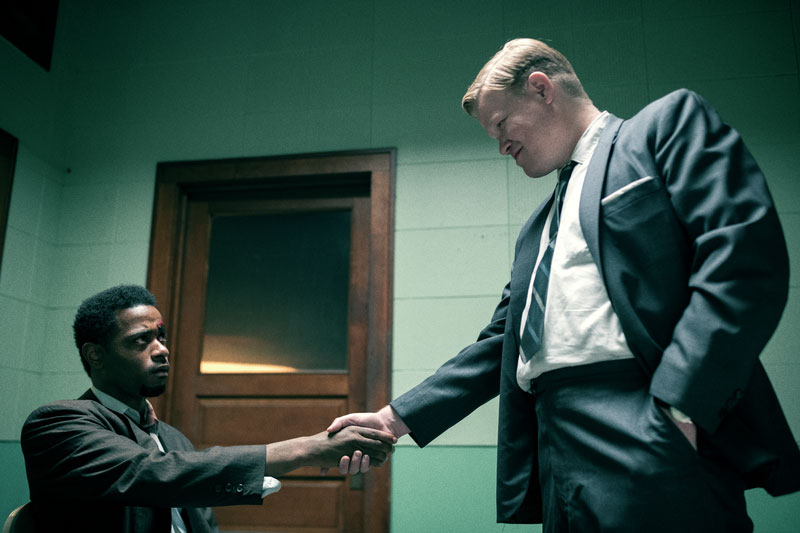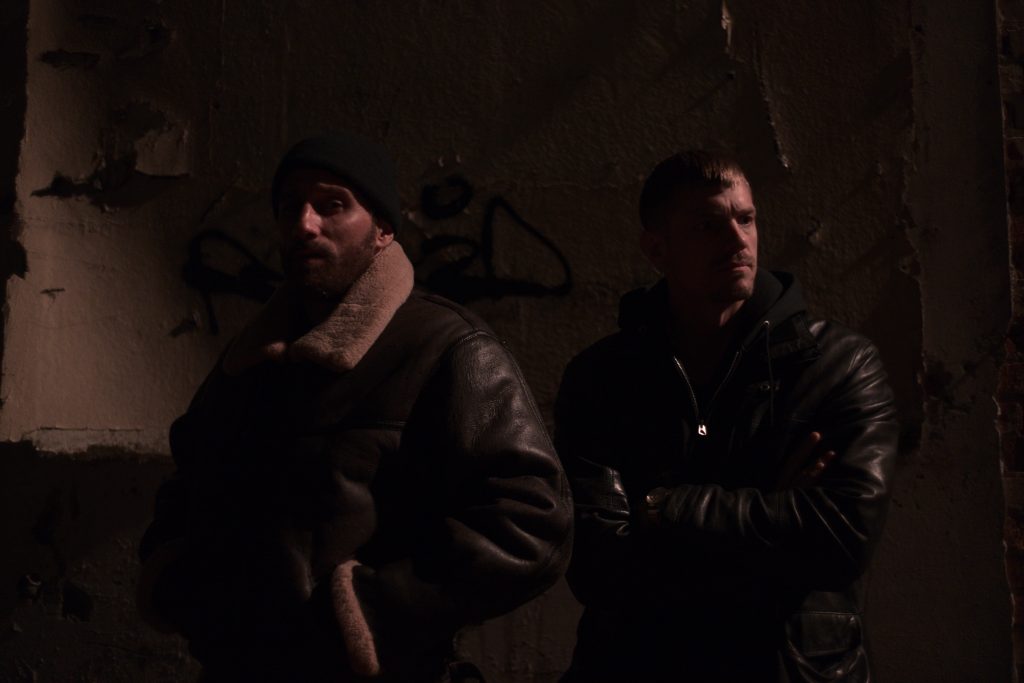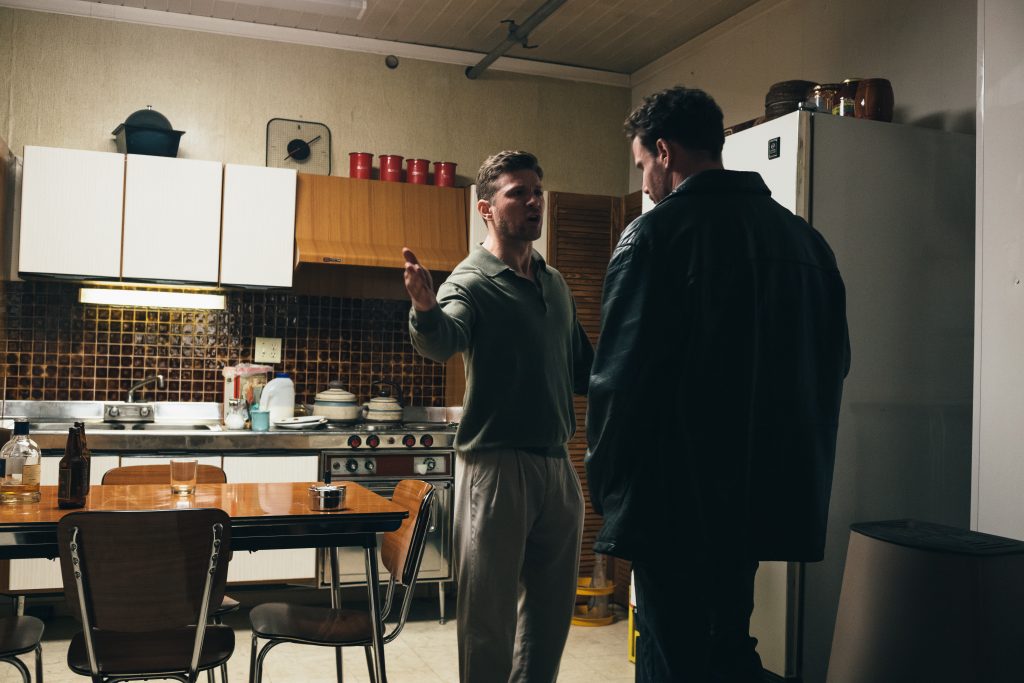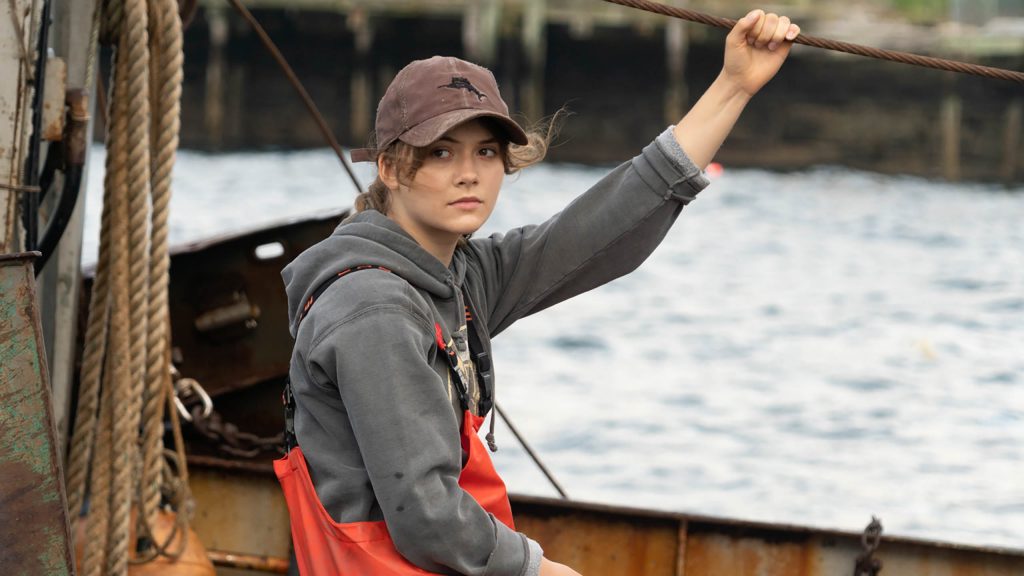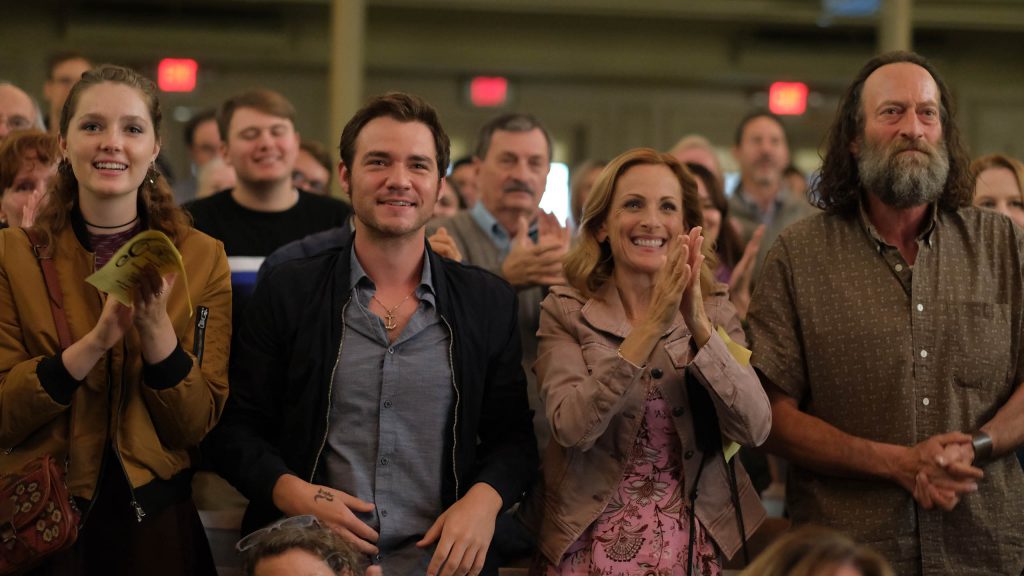February 12, 2021
by Carla Hay
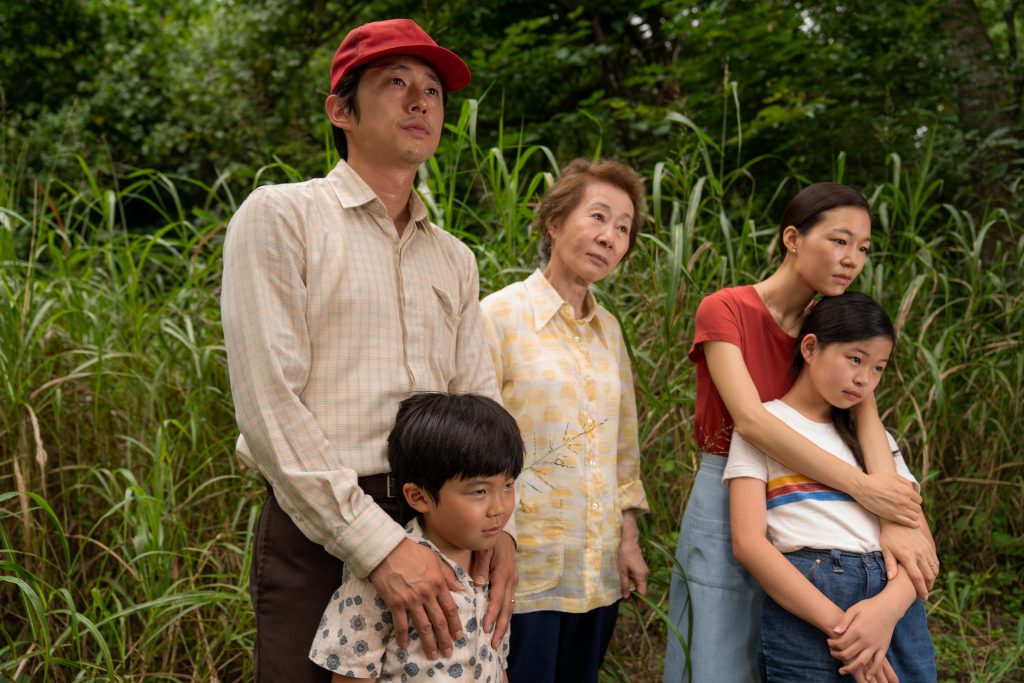
Directed by Lee Isaac Chung
Korean and English with subtitles
Culture Representation: Taking place in the 1980s, in an unnamed part of rural Arkansas, the drama “Minari’ features a cast of Asians and white people portraying the working-class and middle-class.
Culture Clash: A Korean American family moves from California to Alabama, so the patriarch can start a farm, but the family experiences culture shock and unexpected hardships.
Culture Audience: “Minari” will appeal primarily to people who are interested in well-acted dramas about family struggles and the American Dream.
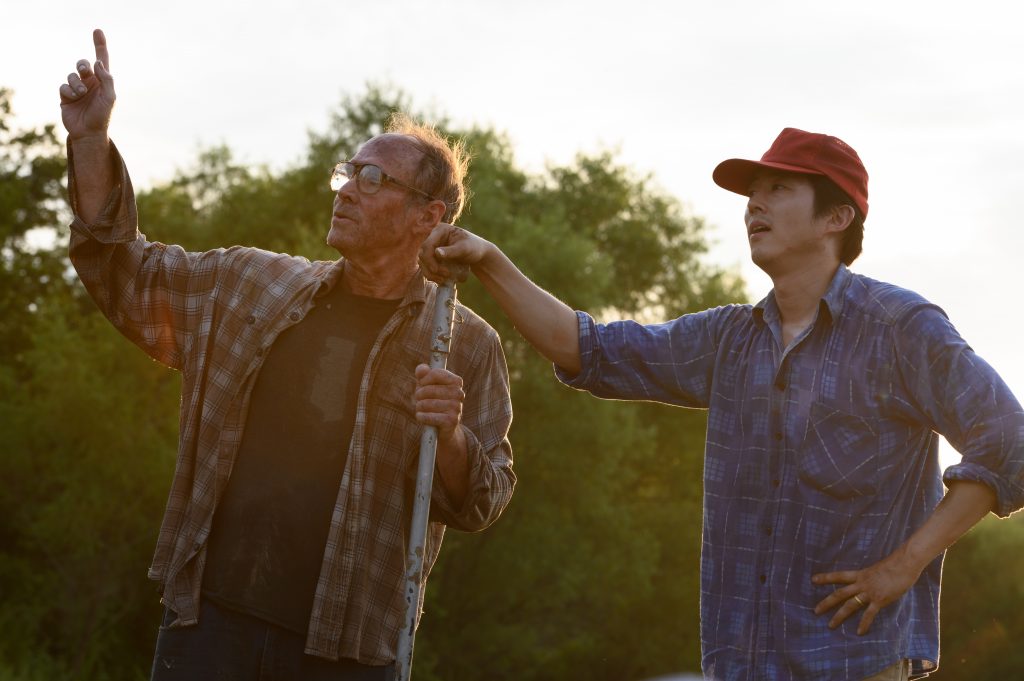
The standout drama “Minari” makes an emotional impact in moments of quiet desperation and anxiety during a family’s quest to achieve the American Dream. It’s not a movie packed with fast-paced action, nor does it fall into predictable clichés of how immigrant families in America are often portrayed on screen. It’s an intimate “slice of life” portrait of a pivotal time in a Korean American family’s history, with impressive performances from the movie’s cast.
Written and directed by Lee Isaac Chung, “Minari” won the 2020 Sundance Film Festival Grand Jury Award in the U.S. dramatic category (the festival’s top prize) and the Audience Award in the same category. And it’s an arthouse film that’s also a crowd-pleaser. There isn’t a false note in the entire movie, although the deliberate pacing of “Minari” might not be to everyone’s taste, especially if a viewer is expecting more melodramatic antics in this story.
Set in the 1980s, “Minari” centers on the Yee family, who have recently moved from California to rural Arkansas. Jacob (played by Steven Yeun) and his wife Monica (played by Yeri Han) are in their 30s and have opposite feelings from each other about this relocation. Jacob is excited and optimistic about this new chapter in the family’s life, while Monica is skeptical and worried. When they drive up to their new home, which is a trailer, Monica expresses her disappointment to Jacob: “This isn’t what you promised.”
Jacob and Monica’s children are daughter Anne (played by Noel Cho) and son David (played by Alan S. Kim), who are aware that their mother isn’t thrilled about moving to rural Arkansas, where the family doesn’t know anyone. But the children have no choice but to go along and see what happens. Anne, who is about 11 or 12 years old, is an obedient and unfussy child. David is 7 years old, very precocious, and a little bit rebellious. David also has a heart murmur, so he’s often reminded by his parents that he can’t run or do any physical activity that could over-exert his heart.
It’s mentioned in the movie that Jacob and Monica are Korean immigrants who moved to the United States after they became a couple, while Anne and David were born in the U.S. It’s why Jacob and Monica usually speak to each other in Korean. Anne and David are also bilingual, but they prefer to speak English.
There are other signs that Anne and David are more open to assimilating with Americans than Jacob and Monica are. The children (especially David) want to make new friends in their new hometown, while Jacob and Monica prefer to keep to themselves and feel more comfortable around the few other Korean immigrants in the area. (“Minari” was actually filmed in Tulsa, Oklahoma.)
In California, Jacob was a very skilled farm worker whose specialty is being a chicken sexer: someone who identifies baby chickens by their sex, so that the males can be separated from the females. Female chickens are considered more valuable than male chickens because females can produce eggs. When the Yee family arrives in Arkansas, Jacob gets a chicken sexer job at a place called Wilkinson Hatcheries, which employs mostly Korean immigrants. Anne works there too, doing the same thing, but she’s new at learning this skill.
There’s been tension brewing between Jacob and Monica. When she first sees that they’ll be living in a trailer, instead of a house, she mutters to herself, “It just gets worse and worse.” And several times during the movie, Monica expresses regret about moving to Arkansas, and pines for what she says was the better life that the family had in California.
But Jacob has other ideas. The property they own in Arkansas comes with about one acre of land that’s ideal for farming. One of the first things that Jacob does is scoop up some of the grassy soil in his hands. He marvels, “This is the best dirt in America.”
Monica is dismayed that Jacob’s plans to have a backyard garden as a hobby quickly turns into plans to start a small farm. It’s a lot to handle for Jacob, who also needs to keep his day job at the hatchery company. Monica reluctantly goes along with Jacob’s decision for her and Jacob get a bank loan to start the farming business. Jacob’s plan is to sell his farm produce to places that carry Korean food. Jacob immediately begins teaching David some aspects of farm life, no doubt because Jacob thinks that David might want to inherit the farm someday.
Jacob determines that there’s enough water flow on the land to build a well and irrigation system. He then buys a tractor from a local, scruffy eccentric named Paul (played by Will Patton), who offers to work for Jacob on the farm. Paul is a Christian who’s a religious fanatic. One of the first things Paul does during the tractor sale is pray in tongues over the land. This behavior makes Jacob uncomfortable, so he declines Paul’s offer to work on the farm.
However, it soon becomes clear that Jacob has no one else to turn to in this sparsely populated area. Paul ends up working for Jacob, who learns to tolerate Paul’s religious quirks. For example, Jacob is a smoker, and the first time that he lights up a cigarette in front of Paul, the reaction from Paul is as if he’s near the fire of hell. In his free time, Paul has a habit of walking down the area’s dirt roads with a large, heavy wooden cross on his shoulder, to recreate the biblical story of Jesus doing the same thing.
Throughout the movie, it’s made every clear that the Yee family is very isolated. Monica suggests to Jacob that they move to a bigger city called Rogers in Arkansas, but he brushes off that suggestion and says they’ve invested too much in the property that they have now. Anne and David are homeschooled, but since Monica and Jacob have to spend their weekdays at the hatchery, they need someone to help take care of the kids during the day.
And that’s why Anne’s feisty mother Soonja (played by Yuh-jung Youn) comes to live with the family. She travels from Korea to Arkansas, but her immigration situation is never explained in the movie. Due to visa restrictions and how quickly that Soonja was able to get to Arkansas, it’s implied that her stay in Arkansas will be temporary. Jacob wants to make enough money through the farm so that eventually, he and Monica don’t have to work at the hatchery anymore and will be able to work from home while the kids are there.
However long Soonja plans to stay, “Minari” takes place over the course of about five or six months, with Soonja coming into the picture during the last couple of months that the story take place. In the movie, Anne mentions that she’s the only living relative for Soonja, who lost her husband in the Korean War. When Soonja arrives with food from Korea, such as chili powder and anchovies, Anne gets so emotional that she cries.
Soonja doesn’t get a very warm welcome from David though. It doesn’t help that David has to share his room with Soonja, even though she sleeps on the floor. David tells Soonja and his other family members why he doesn’t trust Soonja: David thinks she doesn’t act like a “real grandmother,” because she can’t read, she often curses, and she wears men’s underwear. Soonja tries to bond with David by cracking open a nut with her mouth and then telling him to eat it what she just spit out. Naturally, David refuses.
Soonja also tries to be friendly to David by giving him a pack of playing cards. Monica asks Soonja if that’s an appropriate gift for a 7-year-old. Soonja replies: “Start him young to beat these other bastards!”
David has a bed-wetting problem, and when Soonja finds out, she teases David by saying to him in Korean: “Penis is broken.” David replies, “It’s not called a penis! It’s called a ding-dong!” In an act of impish revenge, David plays a prank on Soonja that won’t be described in this review, but it’s enough to say that the prank can be considered amusing, nauseating or both.
Soonja and her minor clashes with David are the movie’s main comic relief, as the stress continues to build in the family because of problems with the farm. Starting the business has been a major financial drain on the family’s funds and there are some setbacks which make it questionable when or if the farm will be profitable. The more that it looks like the business will fail, the more that Monica wants to leave Arkansas.
Jacob refuses to quit, and he tells an increasingly frustrated Monica that it’s about more than the money. It’s about a sense of accomplishment and setting an example for their children: “They need to see me succeed at something,” Jacob says.
More than once, Jacob tells Monica that if the farm fails, she can do whatever she wants, including leaving him and taking the children with her. In other words, the stakes are pretty high for this family, which also has the added worries of some health problems that happen later in the story. Except for the bank loan and Paul’s assistance, Jacob doesn’t ask for much help. Part of it is because of his pride, but part of it could also be Korean culture, which teaches that families should try to keep their problems to themselves so that they won’t burden society.
Because the Yee family lives on a fairly isolated farm and the children are homeschooled, they don’t come in contact with a lot of the local people in their part of Arkansas. Therefore, “Minari” doesn’t have any scenarios where the Yees experience any blatant racial discrimination. Shortly after Soonja arrives, the Yee family attends a local church service, where the Yees are the only non-white parishioners. The white churchgoers are friendly and occasionally culturally ignorant, but they do not deliberately exclude the Yees.
The title of the movie comes from a noteworthy scene when Soonja and David are in the woods and she notices that a nearby creek would be ideal to grow minari. Soonja mentions that minari is the type of herb that can be enjoyed by anyone, regardless of their ethnicity or socioeconomic status. The minari becomes a metaphor not just for following a dream but also for persistence when there’s an obstacle to that dream.
Chung’s writing and direction for “Minari” are uncluttered but rich with emotions that are relatable to people who have close-knit families. There are some arguments and hard decisions that have to be made in how this family will move forward, but these scenes of conflict never look gimmicky just for the sake of bringing more drama to the story. The movie’s production design, cinematography and production design are assets in bringing authenticity to this family tale.
Yeun, Kim and Han deliver the movie’s most memorable performances. There’s an underlying power dynamic between their three characters in the movie that are the catalysts for the biggest developments in the story. Soonja’s arrival puts added pressure on Jacob to be the family’s chief provider, because he doesn’t want to look like he’s incapable of taking care of his family.
David and Jacob also know that Soonja is a reminder of Korea, a country that Jacob and Monica left to seek a better life in America. At one point, David comments about Soonja in a disdainful tone of voice that she “smells like Korea.” Even at this young age, David is aware that his parents think that they’re better off in America than in Korea. However, Soonja’s vibrant presence, even in her unsophisticated glory, is a reminder of how people shouldn’t be dismissive of their family heritage and the value of wisdom that comes with age.
“Minari” takes its time to get to the most dramatic part of the story. But viewers who like to immerse themselves in the everyday lives of a very specific family will find a lot to admire about this film. The movie takes place in the 1980s, but there are lessons learned in the story that are timeless.
A24 released “Minari” in select U.S. cinemas on February 11, 2021, with an expansion to more U.S. cinemas on February 12, 2021. The movie’s VOD release date is February 26, 2021.

